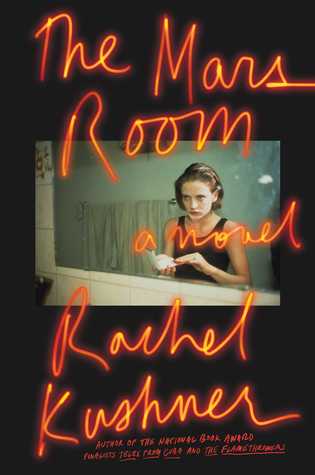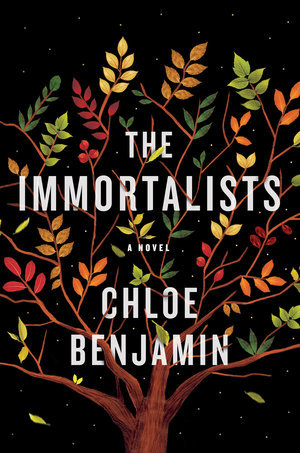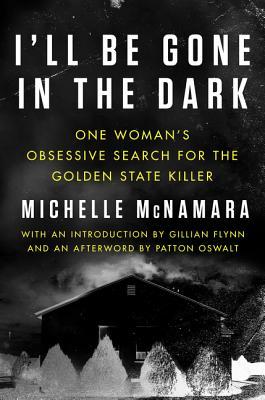Freak Kingdom: Hunter S. Thompson's Manic Ten-Year Crusade Against American Fascism
by Timothy Denevi
Expected Pub: Oct 2018
Freak Kingdom chronicles a decade in the life of Hunter S. Thompson amidst one of the more tumultuous and tense periods of American history. For how often HST found himself in the middle of cross-country era-defining adventures, he may as well be the political speed freak version of Forrest Gump (and I would so watch that movie). Partying with the counterculture Hells Angels and Merry Pranksters, calling out police violence in Chicago, running for Sheriff in Aspen, covering the Chicano Rights movement in LA, and even finding himself at the Watergate hotel bar the night of the infamous break-in.
As someone who used to read Fear and Loathing in Las Vegas every summer break in college, I'm definitely an easy target for this action-packed biography. Still, Denevi's portrayal of HST is well-researched, honest and pulls no punches. I think the spirit of the text is best captured by the book's blurb:
"Hunter S. Thompson is often misremembered as a wise-cracking, drug-addled cartoon character. This book reclaims him for what he truly was: a fearless opponent of corruption and fascism, one who sacrificed his future well-being to fight against it, rewriting the rules of journalism and political satire in the process."
I was genuinely sad when it was over, I want to watch the rest of history play out through lens of this sardonic madman.
// I received this book free from NetGalley in exchange for an honest review.
Publisher: Public Affairs -- but you can also pre-order through IndieBound or my friendly neighborhood indie Brazos Bookstore
Friday, August 10, 2018
Wednesday, August 1, 2018
The Mars Room
The Mars Room
by Rachel Kushner
Pub May 2018
Set in a Women's Correctional Facility, The Mars Room is centered on Romy Hall, a woman serving two consecutive life sentences. The story follows a web of narratives to explore the sad realities of life for marginalized populations both in and out of the prison system.
I'm a bit torn in how to review this book as there is plenty that I feel the author executed very well: flipping between people's perspectives kept the pace of the plot interesting, flowing back and forth across timelines created full, complex inmate's histories. I typically enjoy dark, gritty reads and the deadened affect of the characters complemented the tone of the novel perfectly. All that said, upon finishing all I could think was "Wait, is that it?" This may be an unfortunate case of desensitization via pop culture, but I feel that this book didn't really contribute much to the conversation that has not already been explored (both well or flippantly) by "Orange is the New Black" or "Prison Break." Which isn't to say there can be only one... just that I don't quite understand the waves upon waves of accolades this book received. Or for that matter, the Man Booker nomination. I chewed through the novel over a a few plane trips during a vacation, so maybe I just wasn't in the right headspace.
// I received this book free from NetGalley in exchange for an honest review.
by Rachel Kushner
Pub May 2018
Set in a Women's Correctional Facility, The Mars Room is centered on Romy Hall, a woman serving two consecutive life sentences. The story follows a web of narratives to explore the sad realities of life for marginalized populations both in and out of the prison system.
I'm a bit torn in how to review this book as there is plenty that I feel the author executed very well: flipping between people's perspectives kept the pace of the plot interesting, flowing back and forth across timelines created full, complex inmate's histories. I typically enjoy dark, gritty reads and the deadened affect of the characters complemented the tone of the novel perfectly. All that said, upon finishing all I could think was "Wait, is that it?" This may be an unfortunate case of desensitization via pop culture, but I feel that this book didn't really contribute much to the conversation that has not already been explored (both well or flippantly) by "Orange is the New Black" or "Prison Break." Which isn't to say there can be only one... just that I don't quite understand the waves upon waves of accolades this book received. Or for that matter, the Man Booker nomination. I chewed through the novel over a a few plane trips during a vacation, so maybe I just wasn't in the right headspace.
// I received this book free from NetGalley in exchange for an honest review.
Sunday, July 15, 2018
The Immortalists
The Immortalists
by Chloe Benjamin
Pub Jan 2018
How would your life change if you knew what day you'd die? Four siblings bored of summertime visit a Romani mystic and leave with information that will change all of their lives. The story unfolds like a modern day Greek tragedy - bursting with a weird sort of self-propelled cosmic irony. So even though there was plenty about this book that I did like, it was basically everything happening between the plot lines. The bulk of the story kept me pretty bewildered. First off, going against all human instinct, none of the characters even try to rebel against the prophecies that they say they don't believe in. I'd understand this for a few of them to throw expectations to the wind but all four just full blast steer into the skid. Of course it's cliche to reject fate, but that's only because it's so painfully human to do so. On top of that, none of the characters --main or side-- were very likeable (barring Robert the dancer, he was great). Even the most rational ones of the bunch just dove headfirst into some nonsensical situations making it harder and harder to suspend disbelief as things unraveled.
Now, what I did like. Each character had well-crafted, unique interpretations of the idea that "thoughts have wings" that there is power in "mind over matter." So much about our perception of reality not accessible to our conscious mind and this was explored beautifully. From her discussions of the placebo effect in medicine to physical and psychological forcing of a magicians illusions, this was where Benjamin's reflections on mortality and free will really shone through.
by Chloe Benjamin
Pub Jan 2018
How would your life change if you knew what day you'd die? Four siblings bored of summertime visit a Romani mystic and leave with information that will change all of their lives. The story unfolds like a modern day Greek tragedy - bursting with a weird sort of self-propelled cosmic irony. So even though there was plenty about this book that I did like, it was basically everything happening between the plot lines. The bulk of the story kept me pretty bewildered. First off, going against all human instinct, none of the characters even try to rebel against the prophecies that they say they don't believe in. I'd understand this for a few of them to throw expectations to the wind but all four just full blast steer into the skid. Of course it's cliche to reject fate, but that's only because it's so painfully human to do so. On top of that, none of the characters --main or side-- were very likeable (barring Robert the dancer, he was great). Even the most rational ones of the bunch just dove headfirst into some nonsensical situations making it harder and harder to suspend disbelief as things unraveled.
Now, what I did like. Each character had well-crafted, unique interpretations of the idea that "thoughts have wings" that there is power in "mind over matter." So much about our perception of reality not accessible to our conscious mind and this was explored beautifully. From her discussions of the placebo effect in medicine to physical and psychological forcing of a magicians illusions, this was where Benjamin's reflections on mortality and free will really shone through.
Friday, July 13, 2018
Sons of Cain
Sons of Cain: A History of Serial Killers from the Stone Age to the Present
by Peter Vronsky
To be Published: Aug 2018
“Justice withers, prison corrupts, and society gets the criminal it deserves.”
Putting to rest the idea that serial killings were an epidemic of the 20th century, historian Peter Vronsky sets out to explore the ancient and not-so-ancient history of pattern murderers across (mostly Western) societies. What I found most interesting is the argument that these crimes hold a mirror to the society and cultural conflicts of their time.
Murder, necrophilia, or cannibalism may not have been seen as ethical dilemmas until primitive homo sapiens began to develop a fear or reverence of death. But once cultural taboos were in place, the fantasy and delusions of serial murderers manifest as a reflection of their time. For instance in Medieval Europe, these types of murders were often attributed to supernatural causes such as werewolves, vampires or demonic possession. The pathologically cruel were welcomed into the folds of Inquisitions and witch hunts. Then, the Industrial Age and destabilization of the rural workforce incited an slew of murders targeting servants and working girls etc. This book was a fascinating recap of Western History through the observed patterns of serial murder. From World Wars to Civil Rights Movements to technological advancements, each generational wave brings forth new varieties of and new explanations for these human monsters. But the song remains the same...
This book relies heavily on historical research and mountains of statistics. While definitely a strength, it should still be consumed critically. Vronsky is typically forthright in identifying sources and defining variables, but there are times I found myself paging through the References and left feeling a bit misled by the phrasing of his interpretation. This doesn't detract from the entertainment of the book overall, but I'd be cautious before citing any hypotheses as fact. That said, he does a fantastic job of name-dropping other books on the subject giving the reader plenty of opportunity to read up on it themselves!
// I received this book free from NetGalley in exchange for an honest review.
Check out the author's website to order or get more info
by Peter Vronsky
To be Published: Aug 2018
“Justice withers, prison corrupts, and society gets the criminal it deserves.”
- Lacassagne
Putting to rest the idea that serial killings were an epidemic of the 20th century, historian Peter Vronsky sets out to explore the ancient and not-so-ancient history of pattern murderers across (mostly Western) societies. What I found most interesting is the argument that these crimes hold a mirror to the society and cultural conflicts of their time.
Murder, necrophilia, or cannibalism may not have been seen as ethical dilemmas until primitive homo sapiens began to develop a fear or reverence of death. But once cultural taboos were in place, the fantasy and delusions of serial murderers manifest as a reflection of their time. For instance in Medieval Europe, these types of murders were often attributed to supernatural causes such as werewolves, vampires or demonic possession. The pathologically cruel were welcomed into the folds of Inquisitions and witch hunts. Then, the Industrial Age and destabilization of the rural workforce incited an slew of murders targeting servants and working girls etc. This book was a fascinating recap of Western History through the observed patterns of serial murder. From World Wars to Civil Rights Movements to technological advancements, each generational wave brings forth new varieties of and new explanations for these human monsters. But the song remains the same...
This book relies heavily on historical research and mountains of statistics. While definitely a strength, it should still be consumed critically. Vronsky is typically forthright in identifying sources and defining variables, but there are times I found myself paging through the References and left feeling a bit misled by the phrasing of his interpretation. This doesn't detract from the entertainment of the book overall, but I'd be cautious before citing any hypotheses as fact. That said, he does a fantastic job of name-dropping other books on the subject giving the reader plenty of opportunity to read up on it themselves!
// I received this book free from NetGalley in exchange for an honest review.
Check out the author's website to order or get more info
Labels:
book review,
history,
netgalley,
nonfiction,
reading is fun,
serial killers
Thursday, June 21, 2018
I'll Be Gone in the Dark
I'll Be Gone in the Dark
by Michelle McNamara
Pub Feb 2018
Short version: A riveting read. Truly compelling (& horrifying) write up on the history of the Golden State Killer's crimes and investigation. But I have lots of mixed feelings anyway.
Long Version: On the one hand, I relate to the author's spiral into obsession with serial murder mysteries. In fact, I recently came across my middle-to-high school diary and a good chunk of it was devoted to cracking the Zodiac Killer's cryptograms. (Though I can't say my motivations were very noble, I was just fascinated with catching a glimpse into the deepest darkest crevasses of humanity. Plus I fucking loved ciphers). After undergrad, I even considered applying to graduate programs focused on psychopathology research. So from that angle, I was completely hooked on this text. It's clearly a thorough, thoughtful account meant to shine a light one of the most heinous criminals in recent US history.
Yet somehow despite all of that, the book still left me a bit unsettled. First of all, I wasn't expecting this to be part memoir. When she started going on about her own life and childhood I was genuinely worried she was going to weave herself into the entirety of the book, but thankfully it was just to give some background or establish context here and there. Beyond that, I'm generally suspicious of media riding this new "true crime" wave. It just feels... exploitative. McNamara sort of addresses this early on saying, “...I’ve always been aware of the fact that, as a reader, I am actively choosing to be a consumer of someone else’s tragedy. So like any responsible consumer, I try to be careful in the choices I make. I read only the best: writers who are dogged, insightful, and humane.”
But even with her sensitive portrayal of the victims, the book still feels like it exists purely as a vehicle to showcase her writing. That or she wanted tangible justification for how much of her life she let this investigation consume. She did good work and she kept the case fresh in people's minds: I think the point of this book was to continue to keep the narrative alive, reaching as large an audience as possible in an effort to track down more clues. But man, sometimes her "insight" was so amateur I'd literally cringe.
Now this could totally be the bias of hindsight, but it honestly doesn't seem like anything she contributed-- her hours and hours of combing through files and interviewing detectives and compiling insane amounts of data-- actually did anything to progress the investigation. The lead investigator was on the right track all on his own, it was just a matter of time.
by Michelle McNamara
Pub Feb 2018
Short version: A riveting read. Truly compelling (& horrifying) write up on the history of the Golden State Killer's crimes and investigation. But I have lots of mixed feelings anyway.
Long Version: On the one hand, I relate to the author's spiral into obsession with serial murder mysteries. In fact, I recently came across my middle-to-high school diary and a good chunk of it was devoted to cracking the Zodiac Killer's cryptograms. (Though I can't say my motivations were very noble, I was just fascinated with catching a glimpse into the deepest darkest crevasses of humanity. Plus I fucking loved ciphers). After undergrad, I even considered applying to graduate programs focused on psychopathology research. So from that angle, I was completely hooked on this text. It's clearly a thorough, thoughtful account meant to shine a light one of the most heinous criminals in recent US history.
Yet somehow despite all of that, the book still left me a bit unsettled. First of all, I wasn't expecting this to be part memoir. When she started going on about her own life and childhood I was genuinely worried she was going to weave herself into the entirety of the book, but thankfully it was just to give some background or establish context here and there. Beyond that, I'm generally suspicious of media riding this new "true crime" wave. It just feels... exploitative. McNamara sort of addresses this early on saying, “...I’ve always been aware of the fact that, as a reader, I am actively choosing to be a consumer of someone else’s tragedy. So like any responsible consumer, I try to be careful in the choices I make. I read only the best: writers who are dogged, insightful, and humane.”
But even with her sensitive portrayal of the victims, the book still feels like it exists purely as a vehicle to showcase her writing. That or she wanted tangible justification for how much of her life she let this investigation consume. She did good work and she kept the case fresh in people's minds: I think the point of this book was to continue to keep the narrative alive, reaching as large an audience as possible in an effort to track down more clues. But man, sometimes her "insight" was so amateur I'd literally cringe.
Now this could totally be the bias of hindsight, but it honestly doesn't seem like anything she contributed-- her hours and hours of combing through files and interviewing detectives and compiling insane amounts of data-- actually did anything to progress the investigation. The lead investigator was on the right track all on his own, it was just a matter of time.
Subscribe to:
Comments (Atom)











